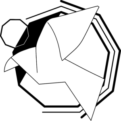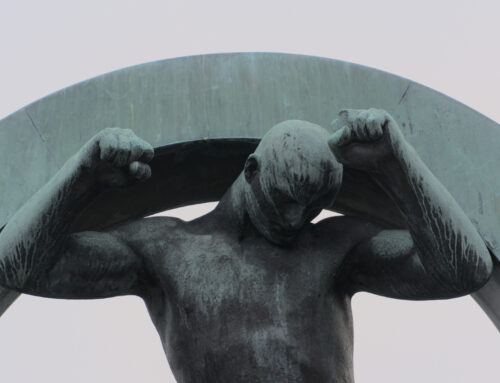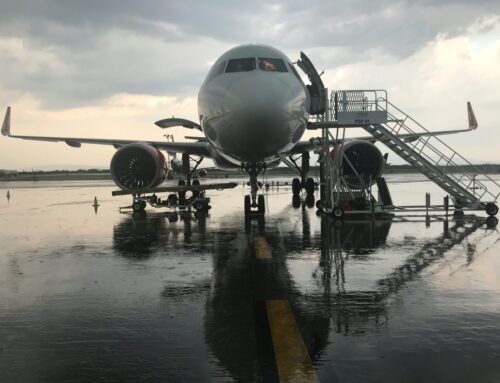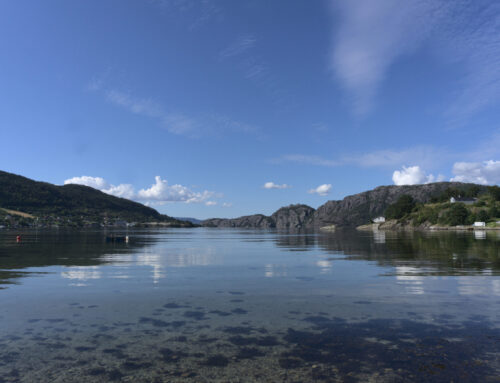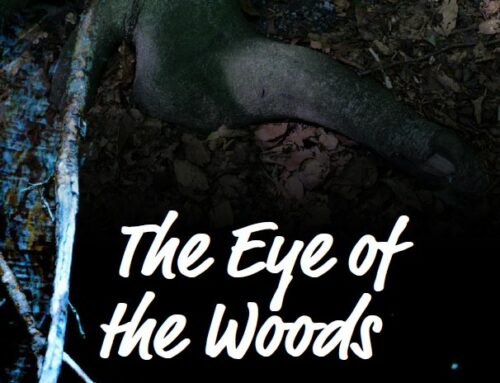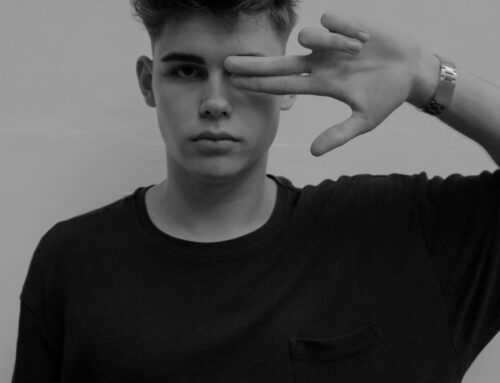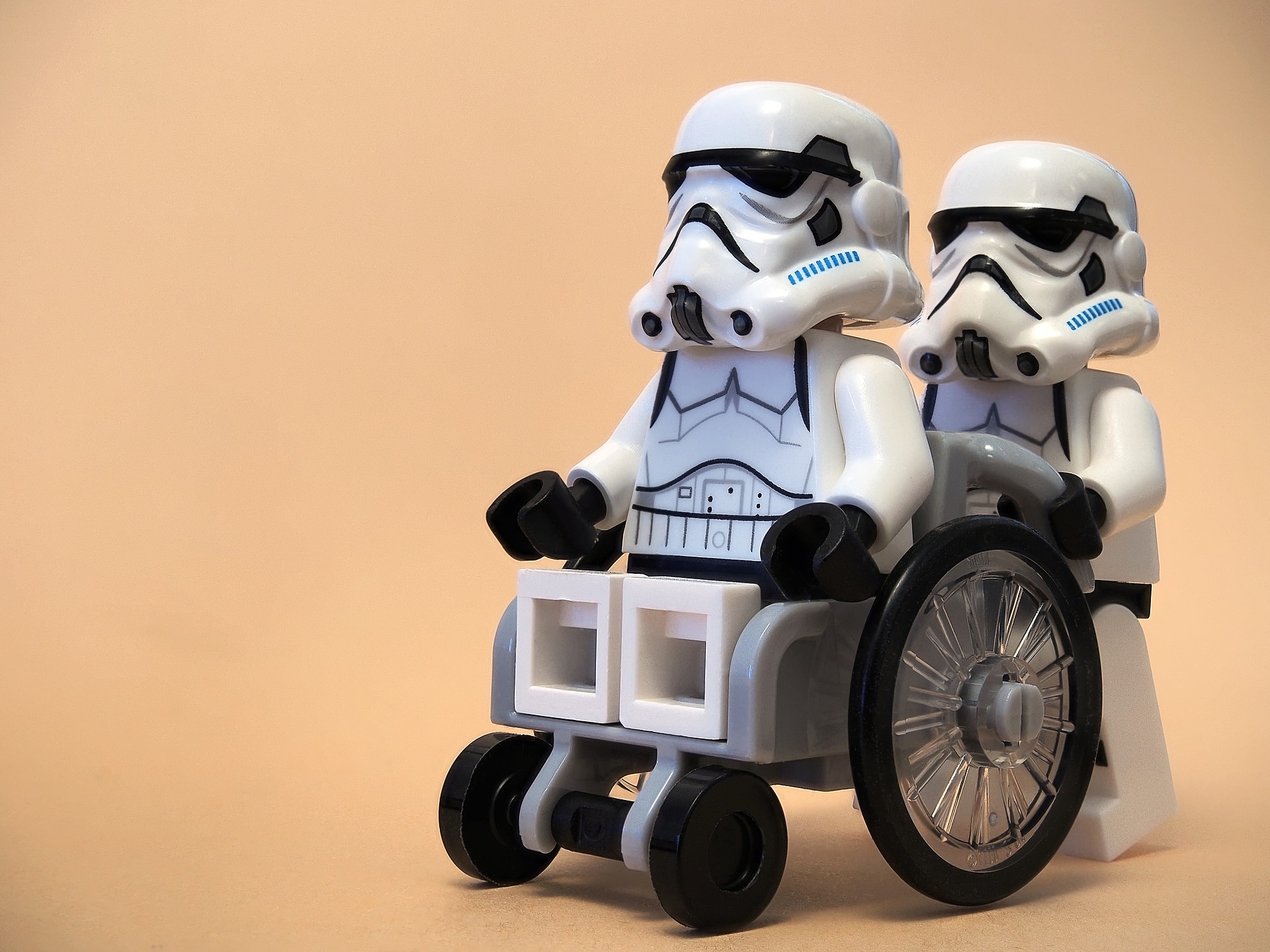
Image by Andrew Martin from Pixabay
Today I left my crutches at home. On the last day of my holiday, I managed to injure myself. I was again trying to fit a pint into a half pint glass, burning the candle at both ends. This is the story of what happened to me, why it happened and what I take away from the whole experience. The lessons I learnt also apply to work life and handling the increasing pressure that we face as communication employees (though of course, we are not alone).
So what happened to me on holiday and why? How could I have avoided it? I had had a relatively late night the day before, catching up with a couple of good friends in Brussels. Then on Sunday, I went to climb for the first time in a new climbing gym with someone that I met via their Facebook page. That is a lot of “new” at once, especially when you are on holiday and so in a way, everything is new as you are out of your usual routine. Needless to say, I overlooked this and overestimated my capacities. I should have dropped a few things from my schedule but no, I wanted to do it all. I was feeling tired that day and a moment of inattention is all that it takes.
I was at the New Rock and had taken a quick break to drink some water and eat a snack on the stairs by the climbing walls, then my partner was going to climb and I jumped down onto the mattress to go and belay him. I was not paying attention and I jumped straight into a hole in the mattress. I buckled over, twisting my ankle and I heard a loud crack coming from my foot. My foot hurt and swelled up immediately. I had this feeling of dread that I had gone and done something stupid. My partner and other climbers came to see what had happened. A few seconds later, they tried to carry me and I almost fainted. Shock. They lay me down on the mattress with my foot up, while I came back to my senses, and took good care of me.
How does this relate to my job in communications, I hear you say. What is there to learn here that could help others? We live in a time where budgets are tightening, staff are being cut, and yet where the workload is increasing and the expectations surrounding our job descriptions are ever growing. It is easy to fall into the trap of trying to do everything, live up to all the expectations whether external or the ones that we place on ourselves. We risk burnout and what could possibly be worth our health?
I am still recovering and will not be in full form for a number of weeks but I am on the mend. I have had plenty of time over the last couple of weeks to reflect on my life and what I need to do better. It is important to set aside time for reflection and questioning every now and again, otherwise we risk getting stuck in a situation which is not good for us in the long term. Here are my lessons learnt in the hope that they may help others not make the same mistakes.
Lesson 1: Take a step back
We may well be heading away from our goals, though we don’t realise it until we sit down and ask ourselves some hard questions. Is this how I want to lead my life? Am I dedicating enough time to what I need to do to reach my goals? What is my particular set of skills and am I making the most out of them? Would I be proud of my work and of my life if I looked back on them in ten or twenty years time?
When it comes to work, without taking a step back from our routine and daily activities, we cannot see the big picture or decide whether we should be spending our time differently.
Personally, I like to have a strategy, a yearly plan, my monthly brainstorming of tasks (that I review regularly) and my daily lists (where I cross off completed items every day). I like to start with my most important task and I give myself regular short breaks as rewards. I keep track of the hours that I spend on what, set myself deadlines and structure my work as well as I can. I like to take responsibility for my actions and therefore take decisions that mean that I can get on with my work without waiting for approval where I don’t need it. I make a judgement call. I also don’t worry about dropping things which are just not worth it in the big picture.
The speed of communication is accelerating, as social media takes up more and more room in our daily lives, we risk spending too many resources on small tasks, where other greater endeavours would be needed. Are we devoting too much time to something which is as volatile as it is short-lived? Are we putting ourselves under too much stress in this crazy Twittersphere? Shouldn’t we rather be keeping such tasks in check and making sure that we are helping our organisation reach its overall objectives? This is a topic for another time though.
Lesson 2: Appreciate others
I was fortunate that my climbing partner turned out to be a really nice guy. Together with the young man working there, they carried me out to his car and he drove me to the emergencies, where they put my foot in a cast. He then drove me around town to look for a pharmacy (open on a Sunday) and took me back to my friend’s place, where I was staying; she had gone on holiday a couple of days earlier. As soon as I found myself alone, I realised that packing and travelling home to Bergen the next day was not going to be a simple affair. Nothing is when you cannot walk.
With the help of a dear friend, I made it onto my train at Gare du Midi, then I had to hang around at the station at Schipol airport for a wheelchair. Eventually and after much back and forth, I was on my plane to Bergen. Again, the kindness of a fellow passenger meant that I could put my leg up and use two seats. After another wheelchair journey at Flesland airport, my partner picked me up and drove me home.
This experience made me realise how helpless you are when you are in some way disabled and cannot walk unassisted, let alone carry belongings with you. It makes travelling much more demanding. You rely on other people. Actually, we all need other people, a community around us, whether we have a disability of any kind or not. Such an experience shows you that. We have a tendency to be too individualistic, to think that we are strong individuals, but we forget that that alone is not enough to survive.
Lesson 3: Prioritise
I am usually a very active person. My partner, parents and several friends have never stopped reminding me that I do too much and should get more rest. I always had the same answer: I love what I do and I would not have it any other way. After sitting in an office for eight hours a day, I want to get out into nature and also connect with others. I do not like to be so sedentary and I like to be in control of my time. My private calendar is at least as full as my work one (at least it was). Being confined to my apartment as a result of my injury was therefore not only a massive change but quite a challenge for my mood.
So what am I like normally? I have always had a tendency to pursue many interests and try and do everything. This is something that I struggle with. Time is limited and you cannot produce extra hours in order to get everything done that you want to get done in a day. You have to learn to say no and make hard choices.
Earlier this year, I decided after much hesitation, to drop my horse riding obligations, as all in all, the situation that I was in was not one that brought me enough joy or fulfilment to justify the time and energy spent. This was a hard decision to take, as horses and horse riding have been my number one passion my whole life. I still ride occasionally though I decided that I needed to prioritise other aspects of my life for the time being.
For a time, this freed up my schedule a bit, but before I knew it, I was filling up the space with more climbing and volunteering. I volunteer every week with the Red Cross in their “Døråpner” (“Door Opener”) programme, where together with a group of other volunteers, I take people climbing that would otherwise not have the chance. This has given my life meaning. I am doing something for others and the joy on their faces, the relationships and encounters I have made, have enriched my life no end. I feel that I am part of a community. I therefore wanted to focus on my climbing and make progress myself, that I could put to use in my volunteering. This became my out-of-work priority.
In addition to volunteering, I am also pursuing a professional dream. I have done a couple of freelance PR jobs with a friend in Brussels in the last six months and I have enjoyed working in the energy and sustainability field again. This has motivated me to build up my personal profile so as to attract further freelance assignments. I am working on my own website that I hope to launch by the end of the year.
By now, you are probably getting a picture of how busy my life has been. By the time I went on holiday, I had started prioritising in my life, though I was still doing way too much. Add to that the long summer days of the north which give you a feeling that the day will never end, and you end up overtired and sleep deprived. People always ask me how I survive the long, dark nights up here. I always tell them that I find the summertime more difficult. You need to force yourself to stop what you are doing and go to bed.
As the summer comes to an end and all of my activities are on hold, I am prioritising getting better, taking it easy and spending time at home. Resting for the last couple of weeks did do me a lot of good. I reconnected with myself and with my partner, spent more time at home without rushing off to my next activity. I did some house work (you cannot escape that forever), I wrote, read and did some drawing, and I listened properly to music.
I accepted my situation, like any stoic would, understanding that my body had given me a pretty strong signal that something needed to change. This accident is an opportunity to set myself on a better track. I intend to keep making the right decisions, however hard they are.
I would love to hear your thoughts so please do comment below. If you would like to share your experience or ideas with me, contact me directly on LinkedIn or on here.
